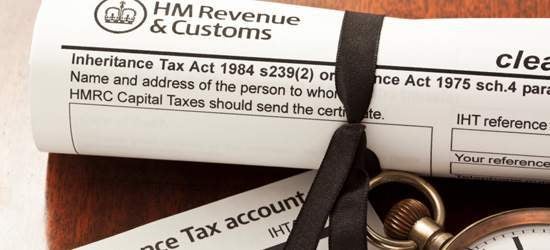
As HMRC collects a record £4.7 billion in inheritance tax, the Treasury is hoping Residential Nil Rate Band will make things fairer, but leading tax lawyers are unconvinced, writes Olenka Hamilton.
A top tax lawyer has claimed the government’s attempt to make inheritance tax fairer is doing the opposite and ‘is good for tax lawyers, because we make money out of advising people on it, but not good for the general public’.
James Quarmby, a tax expert and partner at Stephenson Harwood, says the Residential Nil Rate Band (RNRB), introduced by former chancellor George Osborne to benefit families, complicates tax rules unnecessarily. The RNRB stipulates that those without children and those who do not own their own property must pay IHT at £325,000 but homeowners and parents can leave an extra £175,000 tax-free.
Quarmby says keeping these figures separate is confusing: ‘There are so many restrictions and rules that it’s very difficult to follow. We’ll still be having this conversation in 20 years’ time. It’s rubbish and it would have been easier to put it up to £500,000. Why make it so complicated?’
Such criticism comes following the news that HMRC took a record £4.7 billion this year from inheritance tax (IHT), a 17 per cent increase on last year, according to an analysis done by private client law firm Wilsons. The same analysis points to a 90 per cent increase in British families’ inheritance tax bill since 2009.
The record take comes as a result of increasing property values, while the £325,000 threshold for IHT has remained unchanged since it was put in place in 2009. The reluctance of the Treasury to move the threshold with inflation has seen criticism from the private client sector, not least because what was originally conceived as a tax on significant inherited wealth, has become ‘a general tax on the middle class’.
‘With each passing year, more and more and more middle-class estates are passing the IHT threshold, and are being penalised by a tax that was never intended for them,’ says Tim Fullerlove, partner at Wilsons. If it were keeping pace with inflation, the threshold would now have to be increased to £391,000, yet there are no plans in place to re-examine the threshold before at least April 2019.
The IHT threshold has now slipped more than £65,000 behind where it would be if it had kept pace with inflation. ‘By 2019, that gap is only going to have widened,’ said Fullerlove.
However, a Treasury spokesman defended the incoming rules, stressing that the Residential Nil Rate Band was designed to benefit successive generations: ‘The government wants families to be able to pass on their home to their children or grandchildren.’
Osborne introduced the RNRB to bring down the number of families paying inheritance tax from 2017. The Treasury told Spear’s nearly 30,000 estates will be taken out of paying inheritance tax in 2020-21, allowing them to pass £1 million (£500,000 from each parent) onto their children completely free of inheritance tax.
That is unlikely to assuage those, such as Quarmby, who believe a tax on inheritance represents ‘iniquity’. ‘IHT is an appalling tax – you’ve paid income and capital gains tax all along and then suddenly on death you get hit with 40 per cent. Inheritance tax is cheap to collect and it’s not a political hot potato at the moment so they’re going to say “thank you very much” and keep taking,’ he says.








